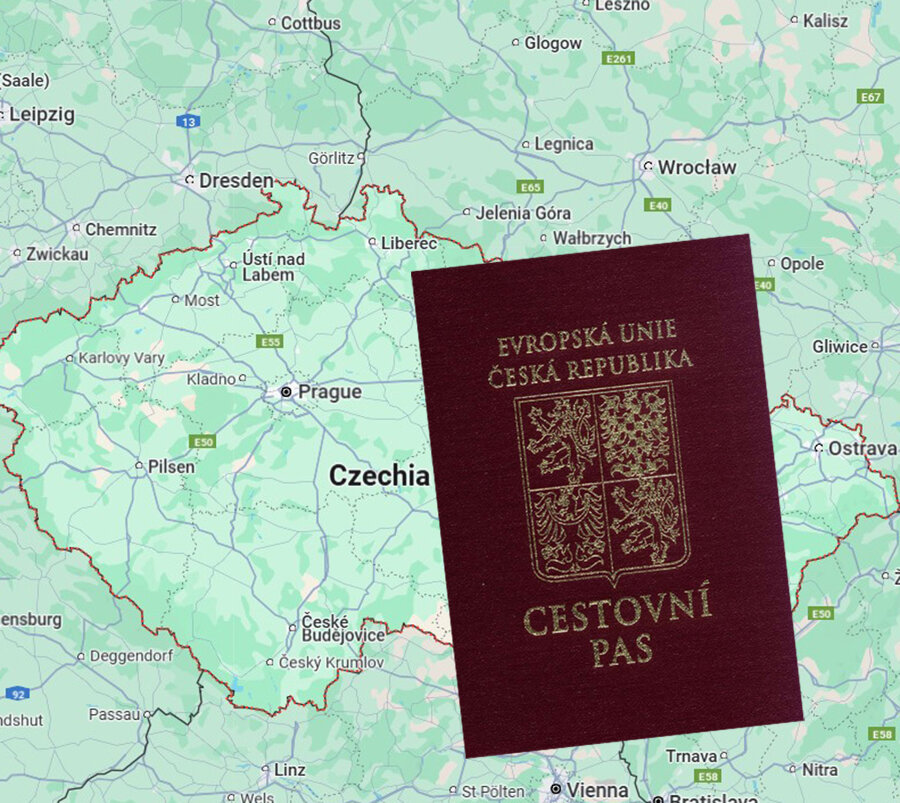read also
 Slovenia Work Permits Become a Key Hiring Bottleneck
Slovenia Work Permits Become a Key Hiring Bottleneck
 Asset Reinvention Reshapes Thailand’s Hotel Market
Asset Reinvention Reshapes Thailand’s Hotel Market
 Europe’s Event-Driven Tourism Grows Strongly in 2025
Europe’s Event-Driven Tourism Grows Strongly in 2025
 More Than 11,000 Flights Canceled in the U.S. Over Three Days
More Than 11,000 Flights Canceled in the U.S. Over Three Days
 Iceland’s Four-Day Workweek Five Years On
Iceland’s Four-Day Workweek Five Years On
 Mortgage Approvals in Ireland Slump Sharply in January
Mortgage Approvals in Ireland Slump Sharply in January
Czech Senate Bans Russians from Obtaining Citizenship

The Czech Senate has approved the Lex Ukraine law, effectively barring Russians from obtaining Czech citizenship. The legislation still requires the signature of President Petr Pavel, but applications from Russian citizens have been frozen since December. Exceptions may apply to certain minors and opposition figures, according to the document.
The bill mandates renouncing Russian citizenship before acquiring Czech citizenship. However, even under this condition, applications will only be considered after the end of hostilities in Ukraine. The new rules primarily target Russians who have already lived in the country for over 10 years, the period required to qualify for Czech citizenship. The issuance of visas to Russians has been suspended since 2022.
The law's proponents cite national security interests as the justification for its adoption. Opposition representatives have argued that potential citizens are already thoroughly vetted by intelligence agencies. Human rights advocates claim the restrictions targeting a single nationality could be discriminatory. Representatives of the Russian community in the Czech Republic have vowed to challenge the law in court.
The bill also introduces criminal liability for “unauthorized cooperation with a foreign state.” Critics argue that this provision allows for arbitrary interpretation by authorities. Andrej Babiš, leader of the opposition party ANO, described it as the harshest attack on free speech and democracy since the fall of communism in Czechoslovakia.
Czech Interior Minister Vít Rakušan defended the measure during Senate hearings, stating that it targets individuals intentionally threatening national security. While existing laws against espionage only apply to classified information, the new crime category will also cover the collection of “non-classified but significant information.”
In December 2024, the Czech Chamber of Deputies approved legislative amendments further limiting Russian access to citizenship. The changes indefinitely freeze all applications for Czech citizenship from Russians over 15 years old, including those already submitted. Exceptions are made for asylum recipients and, in rare cases, individuals admitted for humanitarian reasons or deemed valuable by the state.
Russian diaspora representatives and human rights organizations argue that the new requirements are practically impossible to meet, as renouncing Russian citizenship is not feasible without holding another country’s passport. Critics also point out the law’s discriminatory nature, particularly given the significant number of Russians living in the Czech Republic who oppose their home government. They contend that targeting individuals from a single country creates “unprecedented discrimination based on nationality in European legislation,” violating Czech and European legal norms. Additionally, the amendment was tucked into a refugee aid bill rather than the main citizenship law, and it retroactively applies to existing applications, contradicting the principle of non-retroactivity.
Yuri Gorelov, a member of an advocacy group in the Czech Republic, believes the law affects all Russians living in the country. He described it as a de facto blanket ban on granting citizenship to Russians, both for new and pending applications. While presented as a temporary measure, the law's provisions allow the Interior Ministry to indefinitely reject applications from Russian citizens, effectively halting the process entirely. Critics have also labeled the law a blow to the pro-democratic segment of the Russian diaspora, which includes many young people who arrived in the Czech Republic for education before the COVID-19 pandemic.
The Czech Ombudsman previously criticized the legislation in a letter to Interior Minister Vít Rakušan, whose party initiated the amendment. He highlighted numerous concerns about discrimination but acknowledged that the law's passage appears inevitable. President Petr Pavel has previously indicated no objections to such measures. If signed, the new rules could come into effect as early as February 2025.


